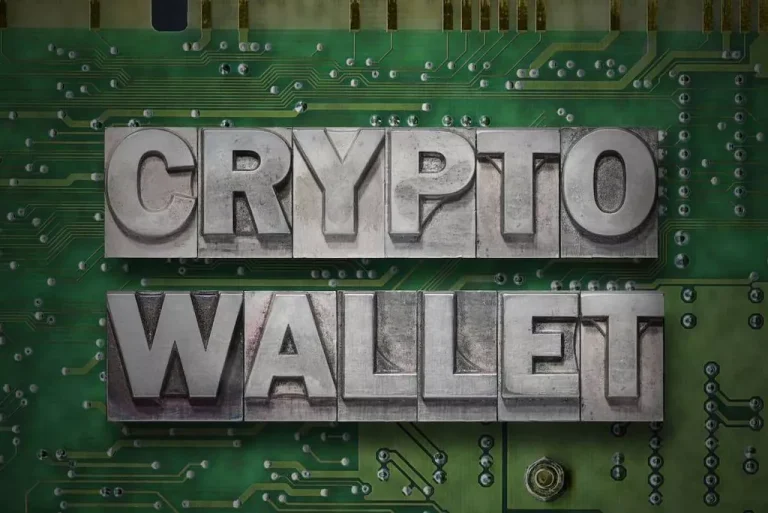What Are Centralized Cryptocurrency Exchanges?
That is their greatest benefit, but it additionally comes with a number of drawbacks; customer help just isn’t on their aspect. One of the first aims of a decentralized trade is to finish the transaction more quickly and cost-effective as in comparison with the centralized exchanges. They obtain this by eradicating the intermediaries that charge a cut in the type of transaction charges on the centralized exchanges. Users entrust the change custody of their funds and depend on the trade’s order matching and transaction execution companies.

You will see the funds in your trade pockets change to the traded asset virtually immediately as nicely. This is why cryptocurrency day merchants who regularly purchase and sell cryptocurrencies often choose centralized exchanges. DEX is a significant step in path of the realization of actual blockchain-based decentralization. While centralized exchanges connect matching orders, DEX platforms join the merchants who problem these orders. DEX users are autonomous in terms of storage and operation of their crypto assets.
The Technology Of Rskswap Tokens
Decentralised exchanges run as sensible contracts on public blockchains like Ethereum or Solana. The first iterations of decentralised exchanges have been based on orderbooks and the concept of facilitating trades between friends. This sort of DEX known as an Orderbook DEX, the place orderbooks can be hosted on-chain or off-chain.
Centralized exchanges (CEXs) are a kind of cryptocurrency change that is operated by a company that owns it in a centralized manner. They connect with a DEX with their crypto wallet and any transaction needs to be signed and confirmed before it’s executed. This means customers by no means surrender custody, which aligns with the idea of crypto self-sovereignty.
Besides the most important variable of fuel charges, fees charged by the DEX platform itself are typically competitive with CEX platforms. Another benefit is you do not have to pay deposit or withdrawal charges when buying and selling on a DEX. In compliance with Anti Money Laundering (AML) and other global/local regulations, most centralized exchanges have KYC-based onboarding procedures. Similar to the funds, the users’ personal data is also centralized exchange meaning stored in centralized locations which symbolize single points of failure. As an answer to those points, exchanges use a mix of “hot” and “cold” wallets. While the former shops part of the users’ property on-chain, available instantly for trading, the latter holds the remainder off-chain.
The distinction between a centralized trade and DEX can be evident in the use of sensible contracts in decentralized exchanges. Furthermore, DEXs also function subtle market-making protocols for guaranteeing substantial liquidity for faster execution of orders. For instance, Automated Market Makers or AMM protocols might avoid the need for a traditional order-matching approach of centralized exchanges. On prime of it, a pricing algorithm helps in defining asset costs on DEXs.
How Do Centralized Crypto Exchanges Work?
Decentralized exchanges permit users to trade cryptocurrency peer-to-peer, with no centralized entity acting as an intermediary! However, decentralized exchanges typically have difficult-to-use interfaces, which suggests they aren’t the best option for newbie investors. The bottom line is that the selection between centralized and decentralized crypto exchanges finally comes right down to particular person preferences, priorities and danger tolerance. Centralized exchanges offer convenience, excessive liquidity and lots of property, making CEXs suitable for traders seeking simplicity. A decentralized cryptocurrency exchange, or DEX, is totally completely different from a CEX. Unlike CEXs, DEXs operate with out a central authority, allowing users to commerce immediately with one another by way of sensible contracts.
This information will primarily give attention to explaining what a centralized trade is and how it works. However, we will also be discussing DEXes as we clarify what they’re and how they differ from centralized exchanges. The hottest entry amongst examples of one of the best centralized crypto change could be Coinbase. It is among the most commonly used centralized exchanges within the United States. Interestingly, the CEX is a massive, publicly-traded firm with its shares listed for buying and selling.
Execs And Cons Of Dexs
Centralization itself is against every little thing that crypto and blockchain stand for. So, builders determined to attempt to construct an alternative — a decentralized change. At first, these attempts have been mostly unsuccessful, with the primary concern being the dearth of liquidity. Centralized crypto exchanges include many benefits, which is why they’re still extremely well-liked. Once centralized exchanges turned extra popular, the user interface was simplified.
The define of a centralized crypto change listing might provide clear insights for people who understand how they work. You can identify reliable centralized exchanges only by identifying their capabilities for addressing the basic functions. Centralized exchanges receive orders for transactions from individual customers or institutional clients. The frequent strategy for crypto transactions on centralized exchanges follows the order-matching method. In the order matching strategy, crypto exchanges match the buy and promote orders which have the same pricing.
In comparison, BEP-20 DEXs like PancakeSwap are centralized however execute trades much sooner at decrease costs. These decentralized exchanges depend on good contracts, self-executing items of code on a blockchain. These smart contracts permit for extra privateness and fewer slippage (another time period for transaction costs) than a centralized cryptocurrency exchange. The clarification for ‘how do centralized crypto exchanges work’ would additionally extend additional with emphasis on regulation.
Bcb Press, Company News And Business Insights
So what options does an change have to have so as to be “centralized”? Since DEXs are built on-chain, they’re limited to offering assist for tokens which are native to the chain they run on. For example, Ethereum-based DEXs will support ERC-20 tokens, but a dealer could not be able to swap from native Bitcoin to Ether easily. Automated Market Makers are algorithms that set the price of an asset based on a mathematical formulation and the availability of tokens obtainable in a DEXs liquidity swimming pools.
- Centralized exchanges supply comfort, excessive liquidity and a lot of belongings, making CEXs appropriate for merchants seeking simplicity.
- They have contributed to pushing the crypto trade down the trail of true decentralization.
- It is essential to know that you simply can not discover a cryptocurrency trade with one hundred pc immunity towards hacks and fraud.
- Centralized cryptocurrency exchanges act as an intermediary between a purchaser and a vendor and make money via commissions and transaction charges.
- For this, customers deposit belongings into sensible contracts called liquidity swimming pools.
Another hanging facet which determines the usability of a Centralized Crypto Exchange (CEX) is security. The custody of belongings in a centralized platform creates a vulnerable target for security breaches. It is important to understand that you just can’t discover a cryptocurrency exchange with 100% immunity against hacks and fraud. However, some centralized exchanges have a greater safety infrastructure compared to others.
A centralized exchange (also often known as a centralized cryptocurrency trade or CEX) is a platform that permits customers to commerce, deposit, and withdraw cryptocurrencies. Users work together with custodial wallets, meaning the change is principally answerable for keeping funds secure. Examples of in style centralized exchanges embrace Binance, Huobi, Coinbase, Kraken, and FTX. DEXs have been designed as peer-to-peer marketplaces with none central authority. Decentralized exchanges wouldn’t have custody of personal keys or information about orders of users, and all the transactions undergo automated execution by way of blockchain. Another significant spotlight for decentralized exchanges refers to lower costs for transactions compared to CEXs.

While CEX stands for Centralized Exchange, there’s another called DEX. DEX is brief for Decentralized Exchange, which run entirely utilizing smart contracts. A CEX is operated by a company, whereas the system and its community operate a DEX. This is a crypto buying and selling platform owned and operated by a centralized entity. CEXs offer higher comfort, however their centralization is not in the spirit of crypto.



